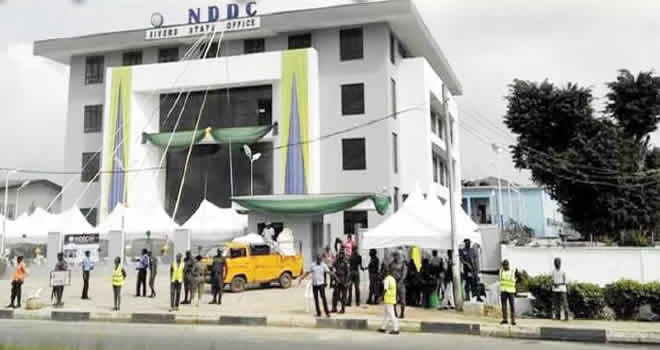N712 Billion for Reconstructing Lagos Airport is From Subsidy Savings, Says Keyamo

The N712 billion allocated for the reconstruction of Lagos Airport is sourced from Tinubu’s fuel subsidy savings and the floating of the naira, as stated by Keyamo.
Festus Keyamo, the Minister of Aviation and Aerospace Development, revealed this during a Channels TV programme, asserting that the funds would be sourced from savings accrued following the elimination of fuel subsidies.
Defending the initiative to invest N712 billion in the overhaul of Terminal One at the Murtala Muhammed International Airport in Lagos State, Keyamo emphasized that the financing stems from savings achieved through President Bola Tinubu’s removal of fuel subsidies and the naira’s flotation.
He noted that the airport’s roof suffers from leaks and the facility is in a state of disrepair and unpleasant odor.
“You observe individuals vending Indomie and various kiosks erected there. The ceilings are deteriorating, and the carousels are malfunctioning due to the unavailability of replacement parts,” he stated.
The recent government approval of ₦712 billion for the airport terminal upgrade has incited widespread criticism, with many labeling it a misplaced priority by the Tinubu administration.
Detractors argue that this decision arises at a juncture when millions of Nigerians grapple with unprecedented inflation, escalating hunger, and rising living costs—conditions largely attributed to the government’s withdrawal of petrol subsidies and the harmonization of foreign exchange rates.
In response, Keyamo elucidated that the project would not be financed through the conventional budget but via the “Renewed Hope Infrastructural Funding,” a dedicated infrastructure fund earmarked for such initiatives.
“This administration pledged major infrastructural enhancements across Nigeria, leveraging the savings from subsidy removal and the naira’s flotation,” he added, noting that the project is anticipated to span 22 months.
The minister cautioned that without the airport terminal’s reconstruction, numerous foreign airlines might consider withdrawing their operations from the country.
“Absent this renovation, certain international airlines may threaten to cease flights to your nation if a satisfactory airport and runway are unavailable, as it impacts insurance; substandard runways and terminals elevate insurance costs due to perceived safety risks,” he explained.
Keyamo underscored that upon completion, the terminal would rival major aviation hubs across Africa, including those in Ethiopia, South Africa, and other nations.
Presently, “As it stands, one cannot land at Lagos (local airport) and attempt to connect to an international flight, perhaps to Ghana.”
“Lagos is not a hub, although that was the original vision in 1977 when it was designed and in 1979 when it was commissioned. The inability to process a passenger from one terminal to another has stunted aviation growth.”
“Our objective in Lagos is to establish a modern airport and forge a genuine hub to compete with other African hubs. Consequently, we intend to completely dismantle Terminal One.”
“This is not a refurbishment; we are demolishing it entirely, leaving only the pillars, the framework, and the decking. Everything else will be removed, and a new design will be implemented,” Keyamo concluded.









